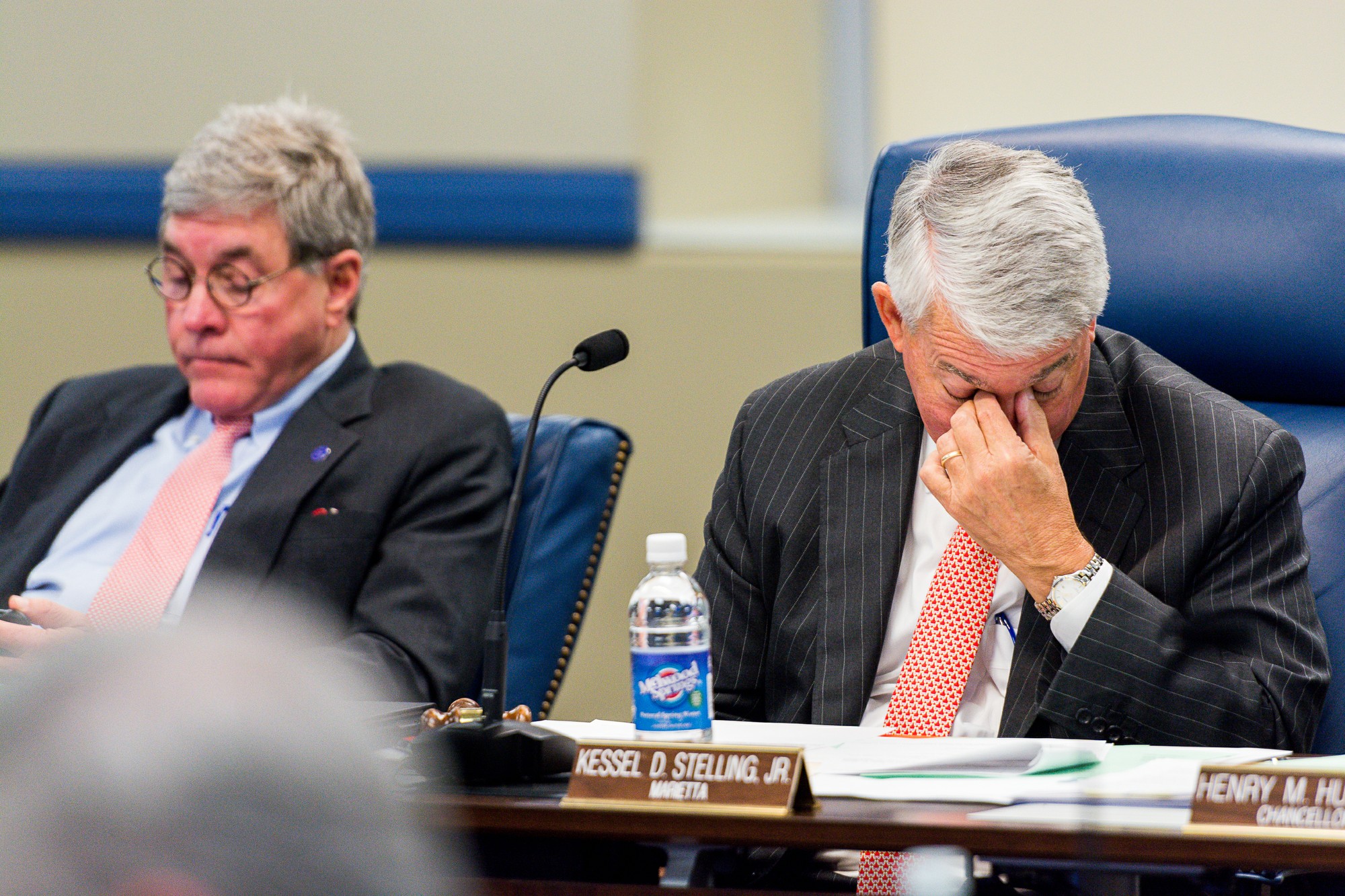The future of Kennesaw State University might have been shifted because of the appointment of Attorney General Sam Olens as the new president of the university.
Despite heavy opposition from students and faculty in the form of protests and online petitions, the Georgia Board of Regents chose Olens as president on Wednesday, Oct. 12.
It appears that the Board of Regents finds Olens to be an exceptional choice, since they unanimously voted to appoint him — minus one regent who abstained from the vote. By doing so, they directly ignored public concerns.
I question what it is about Olens that they feel makes him an appropriate choice, considering he has no background in the field of education.
According to their website, members of the Board of Regents are appointed by the governor to “donate their time and expertise” to the state’s university system.
Individual members of the board have their own levels of expertise, yet it appears as though this is in mostly business and not necessarily in education.
Based on the biographical information of the members provided by the Board of Regents, I believe that many questions remain unanswered.
According to their biographies, one thing several members have in common is that they run successful companies and have been appointed to multiple boards. Still, it appears that few of them have any experience in education besides attending a university for their own degree.
The decision by Georgia’s current and past governors to appoint business moguls seems to validate the idea that public universities are being run more like businesses than schools.
When American universities were first established, many did not require students to pay tuition. Only cheap fees were mandatory, according to Michael Stone of Time Magazine. This helped establish the view that colleges were a public good that should be made easily accessible to students. In turn, this access to education would benefit American society.
This view dissipated over time, according to Andrew Rossi of Time Magazine. Obtaining a college degree became viewed as a privilege, something to benefit an individual in a competition-based society.
Of course, through the creation of tuition and fees, this privilege was made accessible to a select few — many Americans simply didn’t, and still don’t, have the money.
The decision to make universities costly came with other negative implications as well.
“Universities’ attempt to serve their academic mission is being perverted into an effort to attract students as consumers,” Rossi wrote.
Universities now offer more and more amenities such as gyms, apartment-style dorm rooms and even swimming pools in what seems to be an attempt to attract more students and beat the competition.
While these amenities are a bonus for students, the expenses are hardly worth it. Student loan debt in America grows by $2,726 every second, according to Marketwatch.com.
The officials of the University System of Georgia appear to know that they can financially exploit students, and they seem to do so while making a killing.
In fact, a study conducted by the Institute for Policy Studies found that state schools with the highest paid presidents spend double on paying their administration than they do on scholarships.
KSU, for example, gives 4 percent of its students school-funded grants, which is 42 percent lower than the national average, according to prepscholar.com. The average grant from KSU is $916 lower than the national average.
According to The Atlanta Journal-Constitution, former KSU President Dan Papp enjoyed a salary raise in 2015 that boosted his pay to $352,991.
It looks to me as if the best interest of the students is not always factored into this business equation, as is exemplified time and time again by those in administrative and governmental positions.



